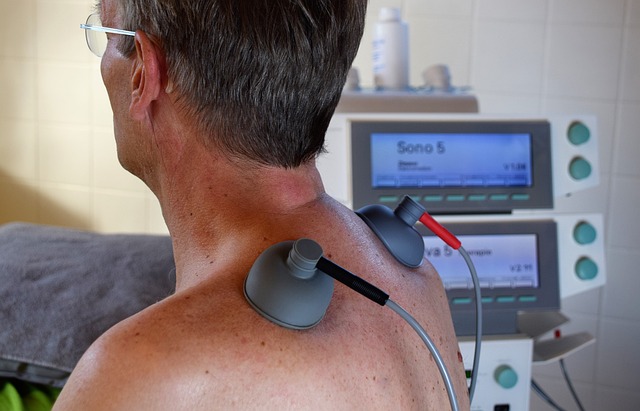Cold plunging—an ancient practice involving short-term immersion in cold water—has gained modern popularity as a holistic approach to managing stress and anxiety. Triggering physiological responses that reduce cortisol levels and promote relaxation, cold water therapy has well-documented calming effects. By stimulating the release of endorphins and offering sensory deprivation, cold plunges provide an accessible and effective method for enhancing mental clarity, reducing anxiety, and promoting overall well-being. Incorporating cold exposure into daily routines can significantly manage stress and anxiety, making it a game-changer for mental health.
Looking for a natural way to combat stress and anxiety? Cold plunges may be the unexpected solution you need. This ancient practice involves brief exposures to cold water, offering a plethora of mental health benefits backed by science. From reducing stress hormones to promoting relaxation, cold water therapy is gaining popularity as an effective method for calming the mind. Discover how incorporating cold exposure into your routine can enhance your overall well-being and cultivate a state of tranquility.
Understanding Cold Plunges and Their Historical Usage for Stress Relief
Cold plunges, also known as cold water therapy or cryotherapy, involve immersing oneself in cold water, typically for a short duration. This practice has been used for centuries by various cultures worldwide, from ancient Greek and Roman civilizations to modern-day wellness enthusiasts. Historically, cold plunges have been employed for their perceived healing properties, including stress and anxiety relief, improved circulation, and enhanced mental clarity.
The calming effects of cold water immersion on the mind are well documented. When one is exposed to cold, it triggers a physiological response that can reduce levels of cortisol, often referred to as the stress hormone. This natural reaction leads to feelings of relaxation and can significantly impact mental health. As such, cold plunges have gained popularity as an alternative therapy for managing stress and anxiety, offering a simple yet powerful way to support one’s overall well-being.
The Science Behind Cold Water Therapy and Mental Health Benefits
The science behind cold water therapy reveals its profound impact on mental health and stress recovery. When you immerse yourself in a cold plunge, whether it’s a quick dip in icy waters or a prolonged session in a cold shower, your body undergoes physiological changes. These include increased heart rate and blood flow, which subsequently boost oxygen and nutrient delivery to muscles and organs. This response is often referred to as the “fight or flight” reaction, but when induced by cold exposure, it can actually promote relaxation and stress reduction.
Cold water therapy has been shown to stimulate the release of endorphins, our body’s natural painkillers and mood elevators, leading to a sense of calm and well-being. Moreover, it reduces levels of cortisol, the stress hormone, which can help alleviate symptoms of anxiety and depression. The calming effects of cold plunges are further enhanced by their ability to disrupt chronic pain signals and improve sleep quality—all crucial factors in managing stress and maintaining mental health.
Practicing Safe and Effective Cold Plunges for Stress and Anxiety Reduction
Practicing safe and effective cold plunges can be a powerful tool in your arsenal for managing stress and anxiety. When done correctly, immersing yourself in cold water triggers a range of physiological responses that promote mental well-being. The sudden exposure to cold stimulates the release of endorphins, often referred to as ‘feel-good’ hormones, which can reduce stress hormones like cortisol. This natural process helps to calm your mind and body, creating a sense of tranquility and relaxation.
Additionally, the calming effects of cold water immersion extend beyond physical responses. The mental discipline required to step into a cold plunge can act as a form of mindfulness practice, encouraging you to focus on the present moment. As you breathe deeply and acclimate to the cold, thoughts of daily stresses and anxieties may dissipate, leaving behind a profound sense of calm and clarity. Incorporating this simple yet effective technique into your self-care routine could be just what you need to navigate life’s challenges with renewed resilience.
Incorporating Cold Exposure into Your Routine for Enhanced Calmness and Relaxation
Incorporating cold exposure into your daily routine can be a game-changer when it comes to managing stress and anxiety. Cold plunges, such as immersing yourself in an ice bath or taking a cold shower, have gained popularity as a natural way to support mental health and promote relaxation. The practice stimulates the release of endorphins, often referred to as “feel-good” hormones, which can help reduce stress hormones like cortisol. This natural balance promotes a sense of calmness and well-being.
The calming effects of cold water immersion extend beyond the physical response. The sudden exposure to cold water acts as a form of sensory deprivation, slowing down mental activity and quieting the mind. Many people find that this practice helps to break negative thought patterns and reduces feelings of anxiety. Whether it’s a brief cold shower in the morning or a more extended cold plunge session, these practices can be easily incorporated into daily routines, offering an accessible and effective way to enhance mental clarity and overall relaxation.
Cold plunges offer a natural and powerful way to support stress recovery. By integrating cold water therapy into your routine, you can harness the beneficial effects on mental health, reduce anxiety, and promote enhanced calmness and relaxation. With proper safety practices, cold exposure becomes an accessible tool to navigate daily stressors and cultivate a sense of well-being. Embrace the calming effects of cold plunges and experience their therapeutic benefits for yourself.
